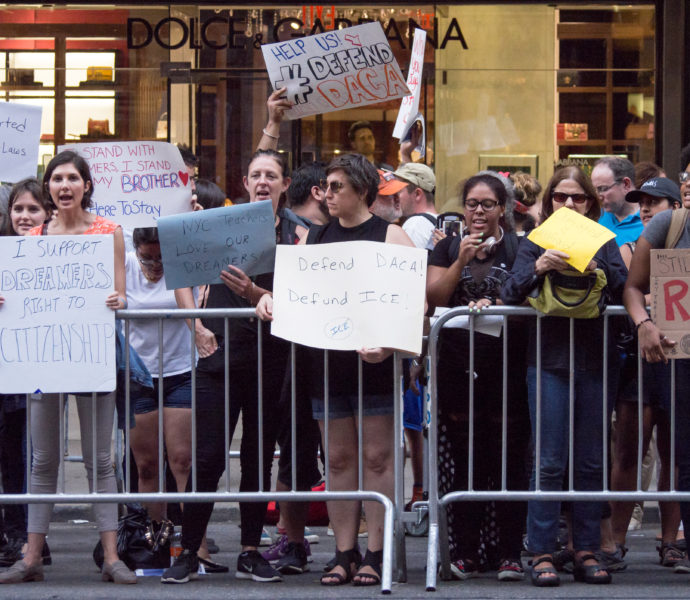A Dreamer about to graduate – now what?
ByAnnabelle Feliz (op-ed)
Read the full article at CommonwealthMagazine.org >
This is the moment I’ve been waiting for. I’m finally in my senior year at Lesley University, majoring in business management and minoring in communications, and my future is ahead of me.
But unlike the rest of my classmates—who are applying for jobs and preparing for life after graduation—I am in limbo. That’s because I am a recipient of Deferred Action for Childhood Arrivals (DACA), a temporary protective status for young people who arrived in the United States as children. DACA has given me the chance to live, learn, and contribute to the workforce in the only country I’ve really known.
I was five when I first came to the United States from the Dominican Republic, and seven when I moved to Lynn. I attended KIPP Lynn Academy Middle School and St. Mary’s High School, and then enrolled at Lesley University in Cambridge. I’m working two jobs to pay for college because I can’t receive federal aid, and I commute from Lynn to Cambridge each day—but my education is well worth it to me.
The reason that I can work and go to school now is because of DACA. I applied for the program in 2014, when I was a senior at St. Mary’s. A college counselor from KIPP helped me navigate the DACA process and supported me as I applied to colleges. It was a stressful process, but I did get permission to work and enroll in college thanks to DACA, and I’ve been fortunate to spend almost four years at Lesley. I’ve learned, made friends, and engaged with a new community of people who are going to change the world.
But when President Trump announced in September that DACA would expire on March 5, I felt like we’d lost all hope. I have worked to build a foundation for myself since I was young, but because of my immigration status, the ground underneath me is shifting. I could lose so much so quickly.
There are over 800,000 Dreamers like me that will be forced to leave the US if Congress doesn’t act soon. The Massachusetts Congressional delegation is on the side of Dreamers like me; now they must work with their colleagues to find a bipartisan solution before the program expires in March. The stakes are high. While it is estimated that sending away all current DACA recipients would cost the United States more than $400 billion in lost GDP, the price to our nation is more than just in dollars and cents. We are an integral part of the communities where we live. We are neighbors, teachers, nurses, volunteers, and friends. We are people—but sometimes I feel we’re seen as a package folks want to send back once they realize they don’t like the color anymore.
I’ve always believed that America is a place where anything was possible with hard work. When I was a little girl, I dreamed of being a teacher, a veterinarian, and even a coroner (thanks to watching “CSI”). Now my dreams have changed—I want to work in business or marketing instead—and thanks to DACA, I have the training I need to do that. I just don’t know if I’ll be able to live out those dreams and have the career I want in this country.
Massachusetts is home to me, and it’s where I want to live and work. When I graduate this spring, I’ll have a powerful degree to begin my career. And my goal is to use my education right here in America, near my family and friends.
I belong here, and so do hundreds of thousands of other young people who have similar dreams for their future in the United States. I hope that Congress will take action to support us and create a sustainable path for us rather than turning us away.
Annabelle Feliz is a senior at Lesley University in Cambridge.
